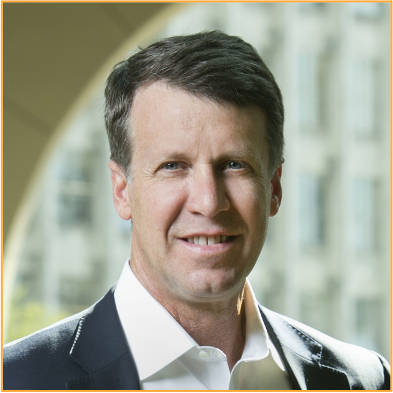-
-
- Programs for University Students
- Full-Time Certificate Programs
- Online Learning
- Information Sessions
-
-
-
- Berkeley Life
- Information Sessions
-
-
-
中文官网
Berkeley Global is engaged in an exciting partnership with BASIS International & Bilingual Schools · China to offer exceptional middle and high school students the opportunity to engage with UC Berkeley's challenging curriculum and world-leading faculty.
Students who gain admission into the Berkeley Global-BIBSC Innovation and Technology Program enroll in courses in entrepreneurship and/or computer science. As they progress through the program in the course of two to three years, students master leadership, collaboration, communication and coding skills through hands-on, project-based learning.
This program mirrors similar interdisciplinary programs available to UC Berkeley undergraduate and graduate students, including those that straddle the intersection of innovation and technology. Students have the opportunity to gain experience in launching and growing their own startups and developing their own apps. The projects they complete in each course combine skills that they have developed in both courses.
These experiences uniquely prepare students for success not only in college applications and undergraduate study, but also in their professional pursuits. After students graduate, they will enter a workforce in which skills in coding and innovation are in high demand. In fact, the top three jobs in the U.S. for which international students gain H1B visas are in software engineering and development. Developing these skills early on provides students with a competitive edge as they transition into their professional careers.
Curriculum Area
Each curriculum area is developed and supervised by a Berkeley Global Academic Director. Read more about each curriculum area below.
Course titles are subject to change.
Entrepreneurship and Innovation
Entrepreneurship and innovation courses serve as an introduction to the study and practice of innovation, entrepreneurship and startups. Students develop skills in the formation, funding, launch and management of startup enterprises through a mixture of in-depth case studies and immersive, intensive project work. Each course in the sequence delves into key aspects of entrepreneurial practice:
- opportunity screening/customer discovery
- team building
- prototyping
- marketing and branding
- finance
- storytelling and pitching
We are focused on experiential learning: Students form startup teams to explore entrepreneurship concepts, undertake the major activities needed to launch a startup, and actively work to evolve and improve their concepts and new ventures.
Academic Director: Mark Coopersmith, M.B.A., Berkeley Haas School of Business

Mark Coopersmith has been teaching entrepreneurship and innovation at UC Berkeley for the past 10 years. He provides leaders and teams with insights, inspiration and know-how to drive innovation and growth in their organizations, and launch new ventures and initiatives. As a Fortune 500 global executive and Silicon Valley entrepreneur, Mark has spent three decades launching, building and fixing high-growth organizations, ranging from raw startups to launching new divisions of multinational corporations such as Sony, to reinvigorating existing businesses, all while leading teams from 2 to 2,000 people.
Three-Year Progression
| Year | Course |
|---|---|
| Year 1 | Foundations of Social Entrepreneurship |
| Year 2 | Entrepreneurship Finance and Marketing |
| Year 3 | Introduction to Entrepreneurship and Startup Management |
Computer Science and Coding
In computer science and coding courses, students gain an introduction to powerful ideas in computer science: abstraction, recursion, functions, algorithms and others. These courses are programming-heavy: Students form pairs to complete challenging labs during class time and work together to design and implement coding projects of their own choice and design. They gain experience in collaborating with peers to utilize programming in order to solve problems. Courses train students in both Snap! and Python coding languages.
They also explore the social implications of computing, allowing them to think critically about computing in a broader context and to speak with a more nuanced understanding of current social-technological issues in computer science.
Academic Director: Dr. Dan Garcia, Department of Electrical Engineering and Computer Science

Selected as an ACM Distinguished Educator in 2012 and ACM Distinguished Speaker in 2019, Dan Garcia has won all four of the department's computer science teaching awards, and holds the record for the highest teaching effectiveness ratings in the history of several of the department's courses. He is a national leader in the "CSforALL" movement, bringing engaging computer science to students normally underrepresented in the field.
Dan has won the NCWIT Undergraduate Research Mentoring Award, the UC Berkeley Unsung Hero Award, the LPFI Lux Award and the SAP Visionary Member Award, and was chosen as a Google CS4HS Ambassador for his work to support teachers and diversify computing.
Three-Year Progression
| Year | Course |
|---|---|
| Year 1 | Foundations of Computer Science |
| Year 2 | Principles of Computer Science |
| Year 3 | App Development |

Berkeley Global Curriculum
At its core, this program aims to supplement young people's academic learning with a set of key competencies that foster growth and ensure success in undergraduate study and beyond:
- Critical thinking and analysis
- Creativity and innovation
- Professional communication
- Collaboration and leadership
Each course strand is designed to develop these skills throughout the middle and high school years with individual and group-based projects and experiential learning. Whether students progress to postgraduate study, academia or industry, they are prepared for excellence.
